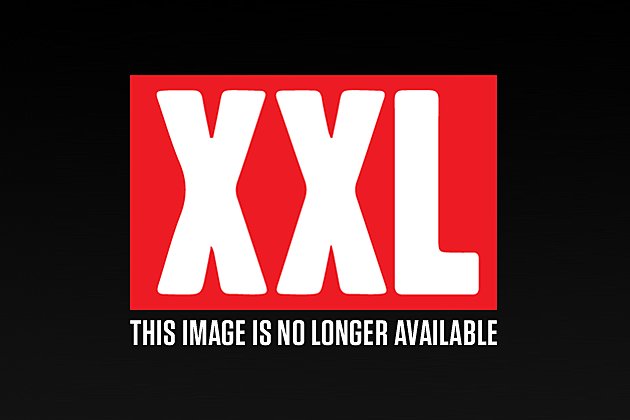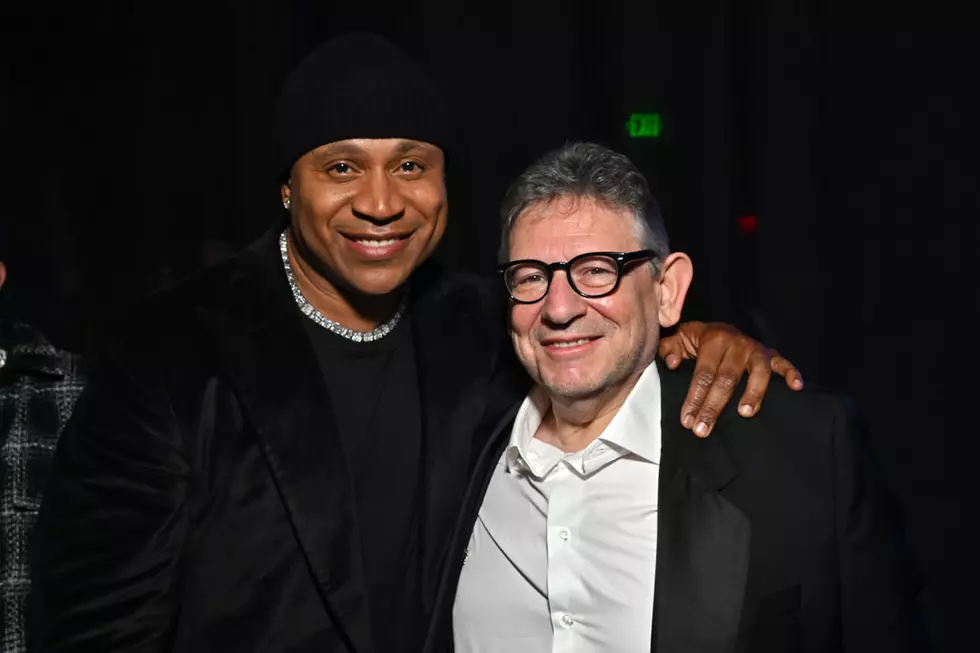
DJ Muggs Talks Bass For Your Face and New Cypress Hill Album
 DJ Muggs’ crucial role as the aural orchestrator behind one of rap’s most successful collectives, Cypress Hill, is a feat that’s unmatched by few. His production approach—full of ominous sample licks and attacking drums—gave birth to a lineage of grimy, analog soundscapes. After close to 25 years in the genre as an innovator, Muggs continues to reinvent his musical wheels, most recently producing an electronic music-driven project titled Bass For Your Face. With influences drawn from dubstep, electro, and glitch, the album’s a unique culmination of multiple genres reinterpreted through Muggs’ hip-hop vision. Laced with multiple projects in his arsenal, including a new Cypress Hill album, a collaborative project called Cross My Heart, and a yet-to-be-identified output titled The Experience, the legendary producer got up with XXL to talk about what brought him into his current musical chamber. —Jaeki Cho (@JaekiCho)
DJ Muggs’ crucial role as the aural orchestrator behind one of rap’s most successful collectives, Cypress Hill, is a feat that’s unmatched by few. His production approach—full of ominous sample licks and attacking drums—gave birth to a lineage of grimy, analog soundscapes. After close to 25 years in the genre as an innovator, Muggs continues to reinvent his musical wheels, most recently producing an electronic music-driven project titled Bass For Your Face. With influences drawn from dubstep, electro, and glitch, the album’s a unique culmination of multiple genres reinterpreted through Muggs’ hip-hop vision. Laced with multiple projects in his arsenal, including a new Cypress Hill album, a collaborative project called Cross My Heart, and a yet-to-be-identified output titled The Experience, the legendary producer got up with XXL to talk about what brought him into his current musical chamber. —Jaeki Cho (@JaekiCho)
XXL: How did you first get into EDM, dubstep, or dance music in general?
DJ Muggs: I like experimental music. I like glitch, I like dubstep, electronic music. Kraftwerk, Prodigy, Justice, I like the hard shit. And I probably heard dubstep in about ’06. When I first heard dubstep, I didn’t know it was dubstep. I just knew it was some banging-ass instrumentals. Especially DJing a lot of European festivals, you can’t just show up and play “The 900 Number,” “T.R.O.Y.,” “Walk This Way,” and “Simon Says." So finding this stuff, I just incorporated it into my sets and then about three years ago I thought, “I’m gonna start making some different shit. I’m bored with hip-hop so I want to experiment with some of these production techniques these guys use.” That was the main thing.
Who taught you the production techniques?
DJ Muggs: You don’t need that now. Now you got the fucking computer. I just go on tutorials. My boy 6 Block out of L.A. was very helpful because he’s a dubstep producer who did jungle before. So all those elements are like, “Well, I’m gonna do this kind of record—but with a hip-hop spirit.” So, when I do a record with Roc Marciano I’m gonna make it New York, gutter, mixtape-type shit. So you don’t like electronic music, but you’re gonna like this. That was my angle. Just making it so that when I played live shows, there would be more of my stuff that I could play. Just experimenting with sounds—I needed stuff to cleanse my musical palette.
When did you start experimenting? Because on the last Soul Assassins album you still advocated a specific hip-hop sound.
DJ Muggs: In about 2009 I started producing this stuff. Then—you know—I wanted to stop and learn different production techniques. Because I did what I did, using the MPs and stuff. But when I sat down to make this record, I put the SP12 and the MP on a table and I said, “This ain’t gonna work, man.” So I started from scratch and just learned, studied all sorts of techniques and software that I could fuck with. Really just went back to school and reeducated myself.
Was it a longer time to process?
DJ Muggs: Yeah, it did. And I kept pushing it off like, ‘I don’t need this—I’m gonna keep the MP.’ And I got to the point where it was now or never. Either you’re gonna grow, or you’re gonna keep this moving. Anything that ceases to grow ceases to exist. I’m gonna be the guy with his horse and buggy while the cars are driving by. What it did is free me musically. So right after I finished this album I wanted to make 40 hip-hop tracks. Mayhem Lauren and I are doing an album together, Bronson, I got Marci tracks—just doing a lot of hip-hop shit. It made everything more refreshing and exciting to just go away and come back. Because to me, I don’t want to live one existence as a human being—eat one kind of food or live in one city. Groups like the Beatles would go to India and incorporate the sitar, and me, I can just experiment with these sounds like, “Let me do some hip-hop, trap, electro shit and do some Jamaican-style sound clash.” This is going to open me up to a whole other world.
Did all the artists involved in the project get the concept?
DJ Muggs: Bambu is really open-minded with music and he gets it. Gibbs didn’t know the second break I put in. So when he was done, I just cut the beat and added the part to the end and extended it to make more of a hardcore approach. Instead of being an EDM record, it was a record for the headphones. It comes from more of a hip-hop standpoint, adding dub elements, glitch elements, and trap elements. Music ain’t supposed to have all these boundaries and these fucking limitations on it. Even with the electronic dudes: “If it ain’t 140 it ain’t dubstep. If it ain’t this it’s only drum & bass,” and I’m like, “That’s why you kill your own music.” And kids are going, “Well, dubstep is old—that’s three years ago!” Nothing’s old. It’s you thousand motherfuckers that are copying these five dudes that are dope that’s burning the shit out.
FIND OUT DETAILS ON THE NEW CYPRESS HILL ALBUM

Why not an instrumental album?
DJ Muggs: I wanted to bring in MCs to give the record life. There are only certain people that can listen to instrumental music and appreciate it, but once you throw a vocal on it, it gives it a soul. You vibe with it or not, stop trying to categorize it.
How will this influence your sound with Cypress Hill?
DJ Muggs: By the third album I was getting really into sitars and Indian stuff and at one time I was like, “Let’s do some rock, but we’ll keep it separate. If you don’t want it, you don’t gotta listen to this CD, you can throw it away and keep the hip hop.” Just because you climb a mountain, you look for more mountains to climb and more ways to do this music, more sounds and more styles. I could make the same fucking record every time. I could grab the SP and make every record sound like the first Cypress album—it’s easy, but it’s boring. So for me, it just has to be different.
B-Real had a much bigger hand in the production on the last Cypress Hill album. Are you more involved for the next one?
DJ Muggs: They wanted to do their own thing and I was like, “Cool.” We were just in two different creative spaces back about five years ago and we really stopped going on the road. After the fourth album, I really got bored. It was just autopilot. The money’s easy. So they spent pretty much the last five, six years doing things their way. [B-Real] and me talked, so I’m gonna do the new album. Time heals everything, right? Wounds heal, things heal, I get to do what I want creatively and they get to do what they want and everybody needs each other at the end. So, within that time I’ve got so many ideas for Cypress, so I’m excited to get into the lab.
That’s a big touring monster. If you want to compare it to a rock band it’s like an AC/DC—you know what I mean? You want it to stay the same and be how it was but you want to bring that into the future. But straight hip-hop, unorthodox, off-kilter—I’m gonna pull out the SP12 for that record.
What’s the best thing about working with artists from this generation that pay homage to the sound of the past? Like Action Bronson, Meyhem Lauren, and Roc Marciano.
DJ Muggs: When I play those guys beats, they’ll grab six or seven and rap and it makes you think, “Oh, shit—really?” It’s fun working with people that have the same musical sensibilities as you. A lot of rappers have A&R guys looking for their beats, “No this is the sound that’s hot this month.” No, I don’t want what’s hot this month, I want a sound nobody has that’s gonna cut through all of this horse shit. Was it good or bad? I don’t fucking know but I just don’t want to sound like none of these people. When you’re in a marathon, it’s not a sprint. It’s a long race, there’s still a lot of shit to do.
Are you having more fun musically than you did several years ago?
DJ Muggs: Yeah, because there was one point where everybody was trying to imitate. We come from a place where you can’t look like nobody, sound like nobody, you can’t use nobody’s slang—you know what I mean? This wasn’t a hustle. Hustling is what hustlers did. This was an art form, and if you weren’t good, KRS-One was grabbing’ your microphone and kicking you off the fucking stage. It just got to a point where motherfuckers were like, “Just let me get my hustle on.” It became that for a few years and shit got really boring. I was like, “If I was a kid growing up, I wouldn’t want to do hip-hop.”
More From XXL









